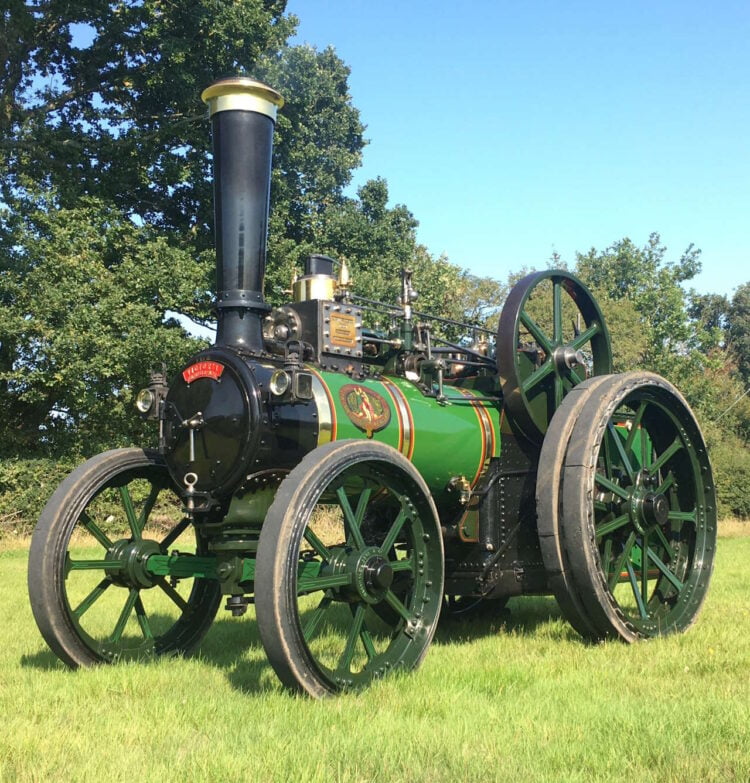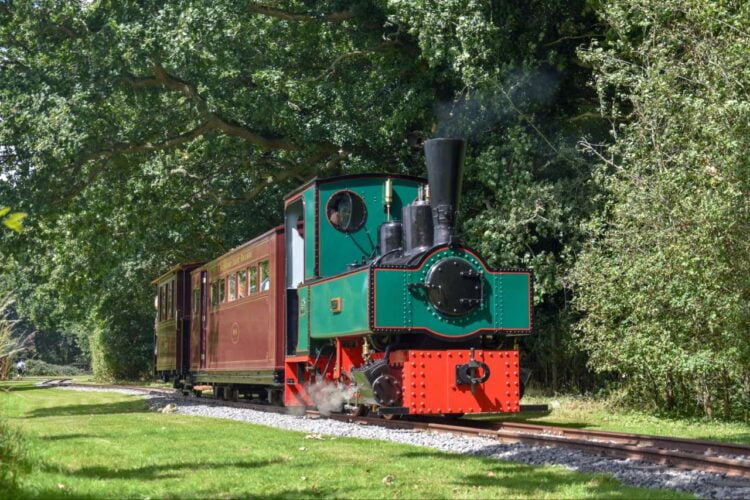In July, for the first time in 20 years, two historic traction engines will be seen together at Amberley Museum in West Sussex during the museum’s Large Steam Show.
The Large Steam Show takes place on Saturday, 6 and Sunday, 7 July, with one of the main attractions for steam enthusiasts and historians being the reuniting of Marshall traction engine Victoria, Empress of India and Fowler traction engine Albert.
Walter Seward purchased Victoria in 1886 to start his threshing and haulage business, followed by purchasing Albert in 1895.
They were an integral part of the business until the 1930s, when they were taken out of use and placed in storage by James Seward. There they remained until they were sold in the late 1960s.
Both engines were restored and in the early 1980s they appeared together at the Brighton and Hove Engineerium, followed by appearing at rallies across the South of England, including at Amberley Museum.
Albert was sold in 2002 and went to France, but Victoria was acquired by Walter Seward’s descendants, Lloyd and Wendy Wakelin and their children who lived near its original home in Hampshire.

After the death in France of Albert’s‘ last owner, in April 2024 Lloyd and Wendy Wakelin repurchased Albert and brought it back to the UK for permanent reunion under the care of the Seward family descendants.
As well as Victoria and Albert demonstrating a remarkable story of historical preservation, the Large Steam Show promises a memorable display of steam power, craftsmanship, and heritage.
To avoid disappointment, Amberley Museum recommends that visitors should pre-book tickets in advance.
Two weeks after the Large Steam Show, a Decauville 0-4-0 tank engine built in 1912 will be one of the attractions at the Rail Gala on 20 and 21 July.
At last year’s Large Steam Show, a rare steam roller built in 1926 and named Joan was a star attraction.

Amberley Museum is in the heart of the South Downs National Park and is effectively many museums on a single site.
There are over 20 exhibition areas covering vintage vehicles, communications, electrical goods, and crafts, as well as nature trails, a narrow-gauge railway, and historic buses.
The museum also hosts a year-round programme of regular events and a team of active volunteers help to look after the exhibits and interact with visitors.
The Museum is conveniently situated next to Amberley railway station near Arundel.





Responses